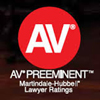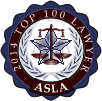421. Generally
Admiralty doctrine of laches applies even though suit is action at law on civil side of court. Oroz v American President Lines, Ltd. (1958, CA2 NY) 259 F2d 636, cert den 359 US 908, 3 L Ed 2d 572, 79 S Ct 584; Seals v States Marine Lines, Inc. (1960, ED La) 188 F Supp 398, 1962 AMC 2552.
In claim for injury on high seas, applicable principle with respect to effect of seaman’s delay in bringing suit is laches and not statute of limitations, regardless of whether suit is treated as libel in admiralty, or is action on law side of federal court based on diversity of citizenship under savings clause, 28 USCS § 1333(1), or even if brought in State Court under savings clause. Larios v Victory Carriers, Inc. (1963, CA2 NY) 316 F2d 63.
In action brought under 46 USCS Appx § 688 laches is more than time; rather it is time plus prejudicial harm, which is delay which subjects defendant to disadvantage in asserting and establishing claimed right or defense. Molnar v Gulfcoast Transit Co. (1967, CA5 Fla) 371 F2d 639.
Laches as defense to admiralty suit is not to be measured by strict application of statutes of limitation; instead, rule is that delay which will defeat such suit must in every case depend on peculiar equitable circumstances of that case; laches is no bar where there has been no inexcusable delay and no prejudice to defendant. Espino v Ocean Cargo Line, Ltd. (1967, CA9 Cal) 382 F2d 67.
Shipowner may not plead limitation of liability under 46 USCS Appx § § 181 et seq. as defense in action under 46 USCS Appx § 688 where he has been guilty of laches or unreasonable delay in asserting such defense. Odegard v E. Quist, Inc. (1961, ED NY) 199 F Supp 449.
Where there has been delay in filing suit, equitable doctrine for laches cannot be used in determining whether claim under Jones Act, 46 USCS Appx § 688, may be maintained where there is no evidence that claimant relied on any misrepresentation of material fact by defendant’s claims agent or that agent’s advice was in any way responsible for delay in filing suit. Peck v United States Steel Corp. (1970, DC Minn) 315 F Supp 905, affd (CA8 Minn) 446 F2d 891, cert den 404 US 1019, 30 L Ed 2d 667, 92 S Ct 682.
There are two elements for successful plea of laches: (1) delay in seeking remedy on part of plaintiff, and (2) prejudice to defendants resulting from that delay; in determining when unreasonable delay in seeking remedy exists, court will look for analogy to applicable statute of limitations after analogous statute of limitations has run. La Lande v Gulf Oil Corp. (1970, ND La) 317 F Supp 692.
There is no statute of limitations in admiralty; court will determine timeliness of actions using doctrine of laches. Francis v Pan American Trinidad Oil Co. (1975, DC Del) 392 F Supp 1252, 21 FR Serv 2d 489.
422. Court’s discretion
Existence of laches is question primarily addressed to discretion of trial court. Alberts v American President Lines, Ltd. (1962, SD NY) 207 F Supp 666.
423. Combined actions
In action brought under 46 USCS Appx § 688, and also under admiralty for maintenance and cure, claim filed 9 years after occurrence of injury will be barred by laches. Claussen v Mene Grande Oil Co. (1960, CA3 Del) 275 F2d 108.
In combined action under Jones Act, 46 USCS Appx § 688, and for unseaworthiness, even though Jones Act is time barred, party guilty of laches can still maintain action by carrying burden of showing excusable delay. Campanile v Societa G. Malvicini (1959, DC NY) 170 F Supp 667.
424. Use of analogous statutory limitation
In applying doctrine of laches courts of admiralty customarily follow analogy of state statute limitations and hold claim barred unless libelant shows special circumstances excusing delay. Wilson v Northwestern Marine Iron Works (1954, CA9 Or) 212 F2d 510.
One having judicially recognized status to assert right of seaman in action against vessel owner is entitled to 3-year limitations period under 46 USCS Appx § 688, rather than analogous limitation period of local law; local law may be used as reference guide in determining whether maritime principle of laches bars action. Flowers v Savannah Machine & Foundry Co. (1962, CA5 Ga) 310 F2d 135.
Doctrine of laches may be applied by analogy to limitation applicable to 46 USCS Appx § 688 cases to bar assertion of unseaworthiness as basis for seaman’s claim for damages in suit brought more than three years after accident occurred. Lipfird v Mississippi Valley Barge Line Co. (1962, CA3 Pa) 310 F2d 639, 1963 AMC 2160.
Limitation of 46 USCS Appx § 688, is more logical and acceptable polestar in determining laches than that of local state statute; 46 USCS Appx § 688 relates to personal injuries on navigable waters, was presumably adopted with seaman’s circumstances in mind, and is of national application; defendant is aided in proving element of prejudice in plaintiff’s delay in bringing suit by inference of prejudice warranted by plaintiff’s delay. Giddens v Isbrandtsen Co. (1966, CA4 Va) 355 F2d 125.
Right to proceed under allegations of unseaworthiness under general maritime law are subject only to admiralty doctrine of laches and not to statute of limitations of Jones Act, 46 USCS Appx § 688, of 3 years. Muse v Freeman (1961, ED Va) 197 F Supp 67, 5 FR Serv 2d 1042.
In Fifth Circuit, in actions by seamen or vicarious seamen against vessel owners for unseaworthiness, analogous statute of reference to be used in determining laches is that of Jones Act, 46 USCS Appx § 688, and not local state statute of limitation. Daws v Movible Offshore, Inc. (1967, ED La) 264 F Supp 764.
In determining when unreasonable delay in seeking remedy exists, court will look for analogy to applicable statute of limitations after analogous statute of limitations has run. La Lande v Gulf Oil Corp. (1970, WD La) 317 F Supp 692.
Three year statute of limitations provided under 46 USCS Appx § 688 is persuasive that laches should not be bar in analogous admiralty proceeding where claim arose less than three years before intervention is sought. Re Industrial Transp. Corp. (1972, ED NY) 344 F Supp 1311.
In complaint brought under 46 USCS Appx § 688, 3 year limitation period has been employed as yardstick in determining what constitutes laches. Harris v Lykes Bros. S.S. Co. (1974, ED Tex) 375 F Supp 1155.
425. Prejudice
Test of laches is prejudice to other party, and prejudice cannot be inferred from variance between witnesses’ testimony and respondent’s written records concerning relevant events. Gutierrez v Waterman S.S. Corp. (1963) 373 US 206, 10 L Ed 2d 297, 83 S Ct 1185, reh den 374 US 858, 10 L Ed 2d 1082, 83 S Ct 1863.
Fact that libelant had present at trial eye-witnesses to his accident and their testimony was available is relevant factor in deciding whether delay in instituting suit was prejudicial to defendant; however, it is not decisive in every instance but is matter of court’s discretion. Marrero Morales v Bull S.S. Co. (1960, CA1 Puerto Rico) 279 F2d 299.
Prejudice is essential element of laches, accordingly, unless prejudice appears, dismissal on ground of laches is improper; however, presence of prejudice does not necessarily require dismissal as prejudice may be outweighed by strength of excuse for delay. Espino v Ocean Cargo Line, Ltd. (1967, CA9 Cal) 382 F2d 67.
District Court’s decision not to dismiss suit for laches brought more than three years after injury was justified where there was absence of prejudice since proof of either absence of prejudice or excuse for delay will repel claim of laches. Watz v Zapata Off-Shore Co. (1970, CA5 Tex) 431 F2d 100, later app (CA5 Tex) 500 F2d 628.
Libellant did not lose rights by reason of delay in giving notice to owners of vessel since delay did not deprive owners of opportunity to present all aspects of their case. The Nicoline Maersk (1931, DC Mass) 53 F2d 103.
Stevedore’s action against shipowner for damages for personal injuries sustained while he was on dock was barred by laches because of his unexplained failure to commence it within two-year period provided by Massachusetts statute, and because of his failure to produce any evidence tending to rebut presumption of prejudice to defendant from this delay. Judge v Johnston Warren Lines, Ltd. (1962, DC Mass) 205 F Supp 700, 1963 AMC 268.
In action to recover for injuries, under 46 USCS Appx § 688, question of whether laches bars action is within court’s discretion; if statute of limitations has run, prejudice to defendant by reason of inexcusable delay is presumed in absence of showing to contrary, but if it has not run, converse is inferred. Phillips v Luckenbach S.S. Co. (1964, SD NY) 227 F Supp 195.
426. Excuse
Ignorance of one’s legal rights does not excuse failure to institute suit; this principle is applicable not only to ignorance of substantive legal rights but also to ignorance of procedures of law by which more favorable doctrine of substantive law can be sought. Marrero Morales v Bull S.S. Co. (1960, CA1 Puerto Rico) 279 F2d 299.
Delay in instituting suit under 46 USCS Appx § 688, may be excused when occasioned by special circumstances beyond control of injured or ill seamen, and under special circumstances defendant may be estopped from asserting statute of limitations or laches as bar to prosecution of seamen action. Mroz v Dravo Corp. (1970, CA3 Pa) 429 F2d 1156.
Laches was not bar to action where libellant’s delay was excusable and had not seriously prejudiced respondent. Mahnich v Southern S.S. Co. (1942, DC Pa) 45 F Supp 839, affd (CA3 Pa) 129 F2d 857, revd on other grounds 321 US 96, 88 L Ed 561, 64 S Ct 455 and reh den (CA3 Pa) 135 F2d 602.
Action under 46 USCS Appx § 688 and under general maritime law brought more than six years after accident occurred, could not be maintained where there was evidence of inexcusable delay on part of plaintiff. West v Marine Resources Com. (1970, ED Va) 330 F Supp 966.
Ignorance of one’s legal rights does not excuse failure to institute suit under 46 USCS Appx § 688. Harris v Lykes Bros. S.S. Co. (1974, ED Tex) 375 F Supp 1155.
427. Burden of proof
In applying doctrine of laches courts of admiralty customarily follow rule that when libel discloses that statute has already run it becomes incumbent upon libelant to plead and prove facts negating laches or tolling statute. Wilson v Northwestern Marine Iron Works (1954, CA9 Or) 212 F2d 510.
In action brought under both 46 USCS Appx § 688 and upon unseaworthiness of vessel, laches will be presumed if plaintiff seaman fails for more than 3 years after accident to assert grounds for recovery unless he overcomes presumption of inexcusable delay and detriment to defendant; when plaintiff failed to plead or prove any facts excusing delay in showing lack of prejudice, in spite of assertion by defendant of laches, his claim will be dismissed as barred. Lipfird v Mississippi Valley Barge Line Co. (1962, CA3 Pa) 310 F2d 639.
Plaintiff has burden of persuasion both as to excuse for delay and as to lack of prejudice to defendant. Larios v Victory Carriers, Inc. (1963, CA2 NY) 316 F2d 63; La Lande v Gulf Oil Corp. (1970, WD La) 317 F Supp 692.
In complaint under 46 USCS Appx § 688, burden rested upon plaintiff to rebut presumption of prejudice, and in light of showing of hardship in locating witness, producing pertinent records, and overcoming affect of dimmed memories, plaintiff failed to sustain that burden. Riddick v Baltimore Steam Packet Co. (1967, CA4 Va) 374 F2d 870.
If action for personal injuries due to unseaworthiness is brought outside of analogous three year period under 46 USCS Appx § 688, plaintiff must plead and prove facts which excuse delay and show why defendant has not been prejudiced. Ward v Union Barge Line Corp. (1971, CA3 Pa) 443 F2d 565 (ovrld on other grounds Cox v Dravo Corp. (CA3 Pa) 517 F2d 620, cert den 423 US 1020, 46 L Ed 2d 392, 96 S Ct 457).
In suit first filed under Jones Act, 46 USCS Appx § 688, and subsequently transferred to Puerto Rico and changed to admiralty suit after expiration of applicable Puerto Rican statute of limitations, burden is cast upon libelants to show special circumstances excusing their delay. Flores v A. H. Bull S.S. Co. (1958, DC Puerto Rico) 167 F Supp 841.
Once statute of limitations of 46 USCS Appx § 688 has run, there arises presumption that defendant has been prejudiced by delay and burden shifts to plaintiff to show excusable basis for delay in absence of prejudice to defendant. Harris v Lykes Bros. S.S. Co. (1974, ED Tex) 375 F Supp 1155.









